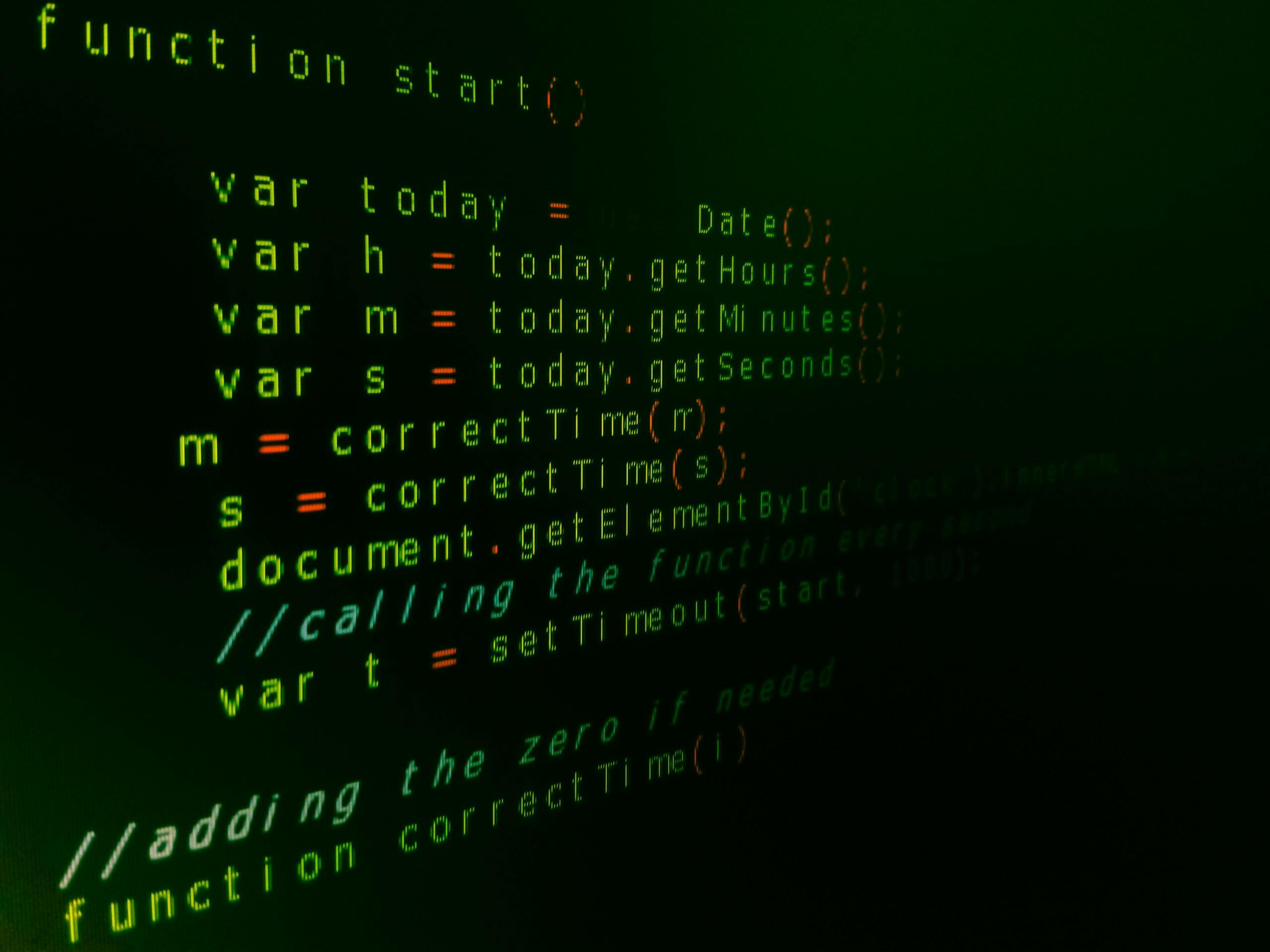If you were to ask all of the programmers in life what the best programming language is, you can expect an overwhelming number of responses to be Python. The language has gained significant traction for its versatility, making it valuable in industries of all types. It has an expansive community of supportive users who will help you work through any errors you might be experiencing and help you learn more about the capabilities the language possesses. The traction the language has received is by no means confined to its user base of experienced programmers, as the adoption is kickstarted by major companies who rely on its power to develop their systems and web applications.
In this article, we will dive into everything you need to know about Python in the workplace, from the salary you can expect to enter in the UK, the roles you can pursue, and companies using Python. By the time you put this article down, you’ll have all the information you need before embarking on a successful career.

What Does a Python Developer Do?
So, if you were to close your eyes and imagine how exactly a typical day as a Python developer would look, you’ll likely spend quite a bit of time writing and testing code. You could also expect quite a bit of work surrounding the building of applications and websites, which also shouldn’t come as much of a shock to you. How many times have you heard that programming is the perfect career for those who enjoy problem-solving? Likely too many, but it’s true! No two days are technically the same, as you’ll always be solving complex problems through mathematical models and structured methods.

While the tasks we mentioned above are often carried out in solitude, there are many aspects of the role that present exciting opportunities to collaborate with cross-functional teams that include front-end developers, software architects, and designers. It’s quite a fast-paced industry, too, so you’ll need to make sure to keep up to date with the latest trends and upskill by constantly adding certifications to your resume as you progress through your career.
In order to ensure that your efforts are placed in the right areas, you might want to consult the requirements of any job listings in your preferred area. For most Python developer roles, you’ll be required to have a deep grasp of Python's core elements, including object-oriented programming, semantics, primitive data types, and arithmetic operators. Putting in the horse to develop your skills in these areas will make you a more desirable applicant and developer in the eyes of employers.
Python Developer Salary in the UK
Part of being fulfilled in your career revolves around having a good understanding of what it is that drives you. Python presents unparalleled opportunities for professionals to make an impact in the industries they love. It also offers opportunities for workers to explore hybrid and remote working models that can give you great freedom and balance in your work life.
Let’s take mid-level developers, for example, who enjoy a total compensation of £44,123, with a £41,005 base salary plus £3,118 in benefits.

One of the biggest motivators that we simply can’t ignore is the earning potential of the role.
The salary that a Python developer can bring home, even from the earlier stages of the career, is one of the biggest pull factors that draws people to the profession.
Now, your experience is going to be one of the biggest factors influencing the salary you earn.
This will dictate the responsibilities that you take on in your role and the value you bring to the company. The factors that you’ll need to take into account when punching numbers into your calculator are the location you intend to work in and the average pay for the same role.

Jobs That Use Python
Python’s versatility makes it a valuable skill across numerous industries. From analysing complex data to building web applications, Python programming opens doors to various career paths. Here’s a look at the key roles where Python skills are essential.
Data Scientist
Data scientists use Python to analyse large datasets and uncover patterns. They work with libraries like Pandas and NumPy to process data, create predictive models, and generate insights that help businesses make informed decisions.
Software Developer
Software developers build applications using Python’s extensive frameworks. They create everything from web applications with Django to desktop software, focusing on writing clean, efficient code that solves real-world problems. As you can see, there are plenty of companies employing Python across their businesses.
Machine Learning Engineer
These specialists use Python to develop AI systems and algorithms. They work with tools like TensorFlow and PyTorch to create models that can learn from data, make predictions, and automate complex tasks.
Python is the most searched programming language on Google, according to PYPL. In 2022, 49.28% of respondents in a Statista survey said they used Python.
Financial Analyst
In finance, Python helps analysts process market data and automate trading strategies. They use Python to create financial models, analyze market trends, and develop algorithms for trading platforms.
DevOps Engineer
DevOps engineers use Python to automate deployment processes and manage cloud infrastructure. They write scripts to streamline operations, monitor system performance, and ensure smooth integration of software updates.
Quality Assurance Engineer
QA engineers write Python scripts to automate testing processes. They create test frameworks, verify software functionality, and ensure applications meet quality standards before release. There are no shortage of Python jobs to be had!
Top Companies Using Python
The sky is the limit for students and professionals who decide to go down the road of becoming a Python developer.
Many of the world's most popular websites and apps that you have bookmarked or downloaded on your phone are built using this language.
Take Google, for instance. When you search for something online, Python is working behind the scenes to help deliver your results.

The tech giant uses Python for everything from its search engine algorithms to YouTube’s video recommendations. Speaking of videos, Netflix relies heavily on Python to make sure your favourite shows stream smoothly and to figure out what you might want to watch next.
It’s safe to say that social media platforms are big fans of Python, too. Instagram’s entire platform runs on Django, a Python framework, handling millions of users sharing photos and stories every second. Facebook uses Python to analyse huge amounts of data about how people use their platform, while Spotify creates those perfectly tailored playlists for you using Python-powered algorithms. Even when you’re getting a ride home, Python is at work - Uber uses it to match you with drivers and figure out the best routes through traffic.
In the first quarter of 2024, 13,802 new tech companies were incorporated in the UK, which is an 11% increase from the previous year. In 2023, a record 51,017 new tech companies were incorporated.
The reach of Python goes beyond tech companies. Financial institutions like JP Morgan Chase use Python to analyse market trends and manage risks, while scientists at NASA use it to process data from space missions and run complex calculations. Gain some further understanding of all a Python developer does.

If you have ambitions of working for yourself or getting the ball rolling with your own start-up, then Python also offers you the possibility to develop your own platform or service. It’s no wonder why students and professionals at all sorts of stages of their careers flock to this programming language for the opportunities and capabilities it presents,
Getting Started With Python
Hopefully, after reading about all of the opportunities that surface as a result of developing your skills with Python, you will find yourself eager to start taking steps towards a role that interests you. In order to get your toes wet in Python, we would advise you not to spend too much time worrying about memorising syntax. You’ll learn an awful lot more by focusing on getting hands-on practice working on projects in Python. It will also help you demonstrate your competency in using language to employers in future interviews.
You will also save yourself a great deal of time and skip the needless trial and error process if you were to pair up with an experienced private Python tutor. Having a mentor over your shoulder when working through projects will go a long way in improving your confidence and learning best practice techniques when it comes to problem-solving.
In order to be sure that you pair up with quality tutors, you can turn to Superprof. The tutoring platform has countless tutors who give online and in-person classes across the UK when it comes to Python. Many of these tutors will have years of experience working across a number of different industries and will also be able to assist you in your career progression and answer any questions you might have, whether they’re Python or career-oriented.
Summarise with AI:


















